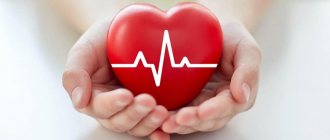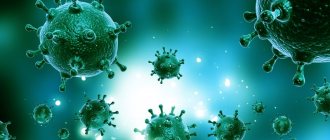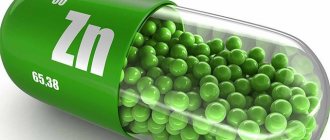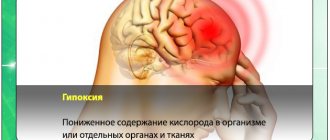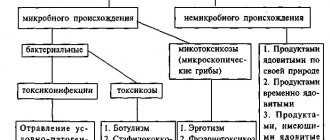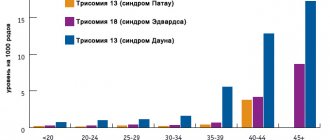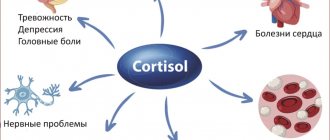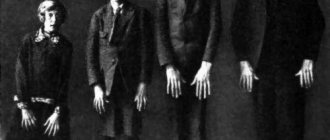Alcohol withdrawal syndrome is a symptom that occurs when a person gives up alcohol. Many people call it a hangover or withdrawal syndrome. At first glance, it is very similar to a hangover, but it has obvious differences. Among them is the duration of this condition and the worsening of the patient’s physical well-being.
This phenomenon develops only in alcoholics in the second and third stages .
Accompanied by a refusal of ethyl, a person experiences severe sweating, tremors in the limbs, impaired coordination of movements and sleep disorders. If this condition is started, it will turn into delirium tremens or delirium tremens, which will result in severe mental disorders. The surest way to overcome withdrawal symptoms from alcoholism is full-fledged anonymous treatment for alcoholism with medication and psychological therapies. ROUND THE CLOCK
Our field specialists provide assistance
in motivation for treatment at home
+7
Free consultation with a specialist
We deliver the patient directly to the rehabilitation center
Cost of services:
| Service | Price |
| Initial consultation at the clinic | for free |
| Persuasion to undergo home-based treatment (intervention service) | from 5,000 rub. |
| Calling a narcologist to your home | from 3,000 rub. |
| Detoxification at home | from 3,000 rub. |
| Alcohol coding | from 4,500 rub. |
| Coding using the Dovzhenko method | from 3,000 rub. |
| Hemming from alcohol | from 4,000 rub. |
| Detoxification (alcohol) | from 3,000 rub. |
| Detoxification (heroin) | from 3,500 rub. |
| Detoxification (methadone) | from 4,500 rub. |
| Detoxification (opium) | from 3,000 rub. |
| Detoxification (amphetamine) | from 3,000 rub. |
| Detoxification (spices and salts) | from 3,500 rub. |
| Diagnostics and consultation with a psychiatrist | from 1,500 rub. |
| Consultation with a psychologist | from 1,000 rub. |
| Session with a psychologist | from 1,500 rub. |
| Narcopsychotherapy | from 2,000 rub. |
| Alcohol/drug testing | from 3,500 rub. |
| Accompaniment to the clinic/rehabilitation | from 5,000 rub. |
| Inpatient rehabilitation | from 25,000 rub. |
| Rehabilitation abroad (Israel, USA, Thailand) | from 100,000 rub. |
Content:
- Causes of withdrawal syndrome
- Signs and symptoms
- Consequences of withdrawal
- Diagnostics
- How to get rid of withdrawal symptoms
- How can you help a patient suffering from alcohol withdrawal?
Alcohol withdrawal is a serious condition that occurs after a person who has been drinking alcohol for a long time suddenly stops taking it.
A new dose of alcohol helps to make you feel better. This creates a certain cycle in which the addict can no longer painlessly stop drinking, even if he wants to. As a rule, withdrawal syndrome appears in the later stages of alcoholism. It is sometimes confused with a hangover. However, in case of intoxication resulting from prolonged drinking, a new dose of intoxicating drink will not improve, but will only worsen the person’s condition. How long does abstinence last, what are its causes, how to relieve the main manifestations - let's figure it out together.
Classification
To identify the optimal treatment method, it is convenient to use a classification based on the type of withdrawal syndrome:
- Regenerative. The safest option. The patient recovers on his own, and the unpleasant symptoms last only a few days. No damage was caused to organs and systems. Does not require specialist help.
- Stable. The course of the condition is predictable, the symptoms gradually go away. If you follow the treatment recommendations, the body is fully restored. The likelihood of complications occurring is minimal.
- Intermittent. A dangerous condition in which periods of improvement in well-being are followed by periods of aggravation of the situation. Treatment in this case should be carried out under the supervision of a specialist who can in a timely manner . If you follow the recommendations, there is a chance of complete recovery of the body.
- Degenerative. It consists of a gradual improvement of the condition. The most unfavorable scenario for the development of alcohol withdrawal syndrome. Requires professional treatment in a hospital. And even after treatment, there remains a high probability of relapse.
In order for alcohol withdrawal syndrome ICD 10 to cause minimal damage to the body, it requires timely and professional diagnosis. Only an experienced specialist will be able to accurately classify the condition in order to prescribe effective treatment.
Causes of withdrawal syndrome
The main reason is the restructuring of the body’s functioning due to the constant supply of alcohol molecules from the outside. It must be said that ethanol is involved in metabolic processes; a certain proportion of it is synthesized daily and is present in the blood of each of us. With prolonged constant drunkenness, the body gradually gets used to the fact that their owner is constantly poisoned by intoxicants. And a sudden cessation of alcohol intake begins to be perceived as a crisis: internal organs malfunction, brain function deteriorates, and metabolic processes are disrupted. The body “screams” about the existing problem with pain, tremors, dizziness and other disorders.
How to restore health after drinking alcohol in the first stage of alcoholism?
First of all, a person must realize that he is becoming psychologically dependent on alcohol and want to get rid of this addiction. The first signs, for example, may be the following:
- Regular Friday alcoholic parties with colleagues. Since Monday you have been waiting for Friday in anticipation of “great and deserved by righteous labors” relaxation.
- The habit of having lunch on weekends with a glass of vodka or a glass of wine, before, during and after the meal.
- Loss of interest in favorite activities, for example, an album with stamps ends up abandoned on the mezzanine, a collection of coins turns into just collecting some pieces of iron, and a walk with a devoted dog becomes burdensome. After all, they have an alternative when pleasure is provided by such a coveted dose of alcohol.
- Preferring a family walk to garage get-togethers in a drinking company.
- Irritation from asking your family to do something when you have just relaxed after drinking a bottle of beer and enjoying watching TV or “hanging out” on your smartphone.
- Psychological discomfort in a sober state.
There are many signs of psychological addiction. The main thing is not to brush them aside, but to seriously analyze the changes in your behavior and habits. Only after this is it possible to make a firm decision to give up alcohol and never again succumb to provocations to drink in company with or without reason.
Since at the 1st stage of addiction, alcohol has not yet become a physiological need and withdrawal symptoms are not observed when quitting it, recovery will mainly affect the mental sphere of a person and certain functional disorders of the intestines, liver, pancreas, and vegetative-vascular disorders.
A psychiatrist-narcologist will help stop at this stage of alcoholism, who will lead the patient to the realization that he is becoming an alcoholic, but also motivate him to completely give up alcohol. At the same time, he will also tell you how to quickly restore the body after alcohol and develop an individual treatment regimen using optimal psychological methods and gentle medications (valerian, Afobazol, glycine).
Signs and symptoms
The duration of withdrawal symptoms will depend on what stage of alcoholism the patient is at. In the early stages, physical well-being deteriorates; in the later stages, the psyche is damaged, as a result of which a person’s mental health suffers.
Common withdrawal symptoms and signs include:
- constant thirst,
- frequent sweating,
- cardiopalmus,
- headache,
- gagging,
- constant weakness
- depressed state and bad mood,
- poor appetite
- redness of the eyes, skin of the body and face due to a rush of blood,
- high or low blood pressure,
- trembling hands
- swelling,
- poor coordination
- motor restlessness,
- difficulty sleeping,
- panic attacks,
- other mental illnesses,
- constant desire to drink.
It is worth noting that due to some symptoms, such as low mood and dry mouth, withdrawal symptoms can be confused with alcohol poisoning. The duration of withdrawal depends on many factors:
- drinker's age
- degree of neglect of alcoholism,
- individual characteristics of the body,
- duration of the binge.
Remember: the sooner drug relief of symptoms begins, the faster relief will come and the fewer complications there will be.
Alcohol addiction according to ICD
Alcoholism is not a bad habit, not the result of a bad character, as ordinary people often think. In fact, it’s the other way around: first the disease appears, then its behavioral symptoms: indifference, inappropriate behavior, irresponsibility, deceit. Like any disease, alcohol addiction has its own code in the International Classification of Diseases - ICD-10.
From the codes describing individual manifestations of the disease, we learn that alcohol causes dependence syndrome (code F10.2), the development of abstinence (code F10.3), up to withdrawal syndrome with delirium (code F10.4).
Consequences of withdrawal
With withdrawal syndrome, a person is in an unstable mental state: he experiences outbursts of anger, manifestations of aggression and irritability. The development of somatic and vegetative complications leads to the fact that the patient is unable to perform even basic actions until he drinks a new portion of alcohol to recover from his hangover. Thus, a person can no longer live fully without a bottle. In this case, complications appear both the next morning after drinking and after several days.
mental disorders may occur 3-5 days after stopping use
- hallucinations,
- paranoia, delusion, persecution mania,
- deterioration of thinking abilities,
- manifestations of epilepsy,
- memory loss,
- delirium delirium
However, the matter does not end there. If a person stubbornly continues to drink and prolong the binge, then other diseases will soon worsen, such as:
- ulcer,
- diabetes,
- renal and/or liver failure.
Alcoholism can lead to cirrhosis, heart disease and alcoholic hepatitis.
Mental abilities also suffer during withdrawal symptoms. With prolonged use of alcohol the following are observed:
- general inhibition of the thought process,
- constantly emerging delusional associations,
- unproductive thinking (an alcoholic is unable to make important decisions and conduct meaningful dialogue),
- depressive state, general depression, gloominess, inability to perceive humor,
- destruction of the system of spiritual values,
- alcohol and the subsequent state of intoxication become the main meaning of a person’s life,
- low self-esteem,
- presence of suicidal thoughts
The severity of symptoms directly depends on how long alcohol dependence continues. The longer, the stronger the mental and mental problems manifest themselves.
Complications
If a person suffering from chronic alcoholism wants to get rid of addiction, it is important to know how to overcome alcohol withdrawal syndrome. Severe forms of the syndrome lead to extreme exhaustion of the body, as well as disruption of the functioning of all organs and systems. Most often, complications arise from long-term use of large doses of alcohol. The body cannot recover on its own . Seizures, fever, brain disorders, sleep problems and other dangerous conditions occur. In some cases, adequate treatment of withdrawal symptoms can even lead to death.
Diagnostics
The doctor makes a diagnosis depending on what symptoms have already appeared by the time you contact a narcologist. One of the most important symptoms is the continued craving for drinking. Questioning the patient helps determine the exact diagnosis and what stage the disease is at.
The list of factors that the doctor needs to know includes:
- Duration of drinking strong drinks.
- How strong is the craving for drinking the next day after drinking, how quickly does it make itself felt and what is the degree of its intensity.
- Does the patient get better from drinking a new portion of alcoholic beverages?
- Is the person ashamed of his addiction?
- Is there motivation for sobriety?
- Do you have any chronic diseases or allergic reactions to foods?
In addition to the interview, a physical examination is required to establish a diagnosis, which helps identify clinical manifestations.
Description
Withdrawal syndrome is characterized by the appearance of various body reactions that occur as a result of quitting alcohol consumption. Occurs after prolonged consumption of alcoholic beverages over several days or weeks, as well as in chronic alcoholics who drink alcohol for a long time and in large doses.
Signs of the condition begin 6-48 hours after the last dose taken, and continue for several days or even several weeks. It is accompanied by disruption of various body functions, which can cause dangerous and pleasant symptoms. The severity of the condition depends on the duration of alcohol consumption. It is most difficult for older people and patients with chronic diseases.
How to get rid of withdrawal symptoms
Treatment is carried out by a specialist narcologist after making an accurate diagnosis, identifying all complications and contraindications. Drug therapy for withdrawal symptoms can be done at home. But in the presence of severe symptoms and prolonged heavy drinking, hospitalization will be required.
To stop the main manifestations, the patient is given a drip, which helps cleanse the body of toxins and ethanol residues. Medicinal drugs are added to detoxification solutions:
- nootropics to restore normal brain function,
- hepatoprotectors to protect the liver,
- sleeping pills and sedatives,
- vitamins B and C,
- potassium-magnesium complexes,
- metabolic and anticonvulsants.
In inpatient conditions, more effective methods are used to relieve withdrawal symptoms:
- plasmapheresis is the name given to the process of removing harmful substances from the blood and subsequent administration of salts and protein,
- removal of toxins from the intestines (intestinal lavage),
- restoration of the body, carried out with the help of physiotherapy and diet therapy
Work on your sober life
To learn to live soberly and get pleasure and joy at the same time, you need to:
- change your lifestyle: fill it with new meaning, positive emotions and impressions;
- to refuse from bad habits;
- change your attitude towards people and their behavior;
- bring harmony to all areas of life;
- learn to cope effectively with stress.
Only comprehensive work on yourself and your life can give positive results and help in overcoming difficulties.
How can you help a patient suffering from alcohol withdrawal?
Many people try to overcome withdrawal symptoms on their own. This is strictly not recommended. Not only is self-medication ineffective, it can cause complications. Only an experienced narcologist can make an accurate diagnosis and create an optimal course of treatment.
However, loved ones can still provide invaluable help. To speed up recovery and prevent dehydration, the patient needs to be fed nutritious broths, vitamins and standard medications to normalize cardiac activity. But the best thing that family and friends can do is not to treat at home, but to call drug treatment help.
Treatment of alcohol addiction in
Treatment of alcoholism is a complex process, because specialists must relieve acute conditions, withdrawal symptoms, eliminate physical attachment, and psychological causes of the disease. In addition, it is not enough to simply cure the patient and return him to a normal lifestyle. His condition is still unstable; the person needs some time to adapt to sober life. During this period, he needs the help of doctors.
Today you can see a lot of offers for the treatment of drug addiction diseases, not all of them include a full range of services or provide the opportunity to conduct a full course of treatment and rehabilitation for addiction. There are clinics and centers that specialize only in emergency care, or, on the contrary, in rehabilitation after drug treatment.
Ours provides its clients with support and quality treatment at absolutely all stages of the treatment course. With us, you can call a narcologist to your home to relieve the patient’s acute condition, or use the service of motivation for treatment when you yourself cannot persuade a relative to undergo treatment. We provide complete detoxification and drug treatment for addiction, as well as long-term psychological rehabilitation. Post-treatment support by our specialists helps the recovering person calmly settle into a new sober life without relapse.
It is not enough just to know about such opportunities. After all, while you are thinking and planning, doing nothing, the patient risks his life every day, and his body receives irreversible damage that can make him disabled, even if the addiction is cured.
Therefore, we sincerely recommend that you do not hesitate, but ask all your questions regarding treatment today, draw up a rough plan, and find out the estimated cost from our consultants. It's free and doesn't obligate you to anything. You can do this at any time by calling our hotline, its number is listed on the website page. Or you can fill out any feedback form and we will contact you.
Literature:
- Alcohol withdrawal syndrome / I.V. Bokiy, I.P. Lapin. – Leningrad: Medicine. Leningr. department, 1976. – 119 p.
- Modern approaches to the treatment of severe alcohol withdrawal syndrome (methodological recommendations) / Association of Narcologists, a professional community of narcologists; [compiled by: Vinnikova M. A and others]. – Moscow: New Terra, 2021. – 47 p.
- Detoxification in acute ethanol poisoning complicated by alcohol withdrawal syndrome or delirium delirium: abstract of thesis. ... Candidate of Medical Sciences: 03.14.04 / Vitaly Viktorovich Zaikovsky; [Place of protection: Scientific research. Institute of Emergency Medicine named after. N.V. Sklifosovsky]. – Moscow, 2011. – 26 p.

